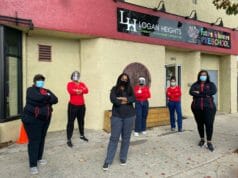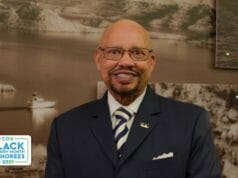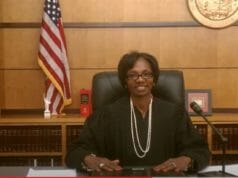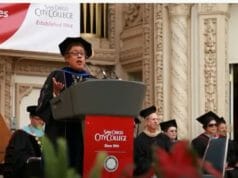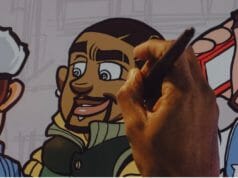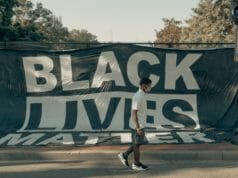John Robert Thompson Jr. (September 2, 1941 – August 30, 2020) is a former American college basketball coach for the Georgetown Hoyas. Thompson was inducted into the Naismith Basketball Hall of Fame in 1999; he was instrumental in establishing the Big East conference in the early 80’s as Georgetown became a perennial powerhouse.
In 1984, he became the first African-American head coach to win a major collegiate championship, capturing the NCAA Men’s Division I Basketball Championship when Georgetown, led by Patrick Ewing, defeated the University of Houston 84–75.
His career took off at Providence College, when he led the Friars to the 1963 NIT Championship and, as team captain, he took PC to their first NCAA tournament in 1964.
He was drafted by the Celtics in the 3rd round of the NBA draft, spending two seasons backing up Bill Russell for the NBA champs before moving on to coaching, where his style was influenced by his time with Red Auerbach. Thompson’s legacy includes coaching four players that would join him in the Hall of Fame: Patrick Ewing, Alonzo Mourning, Dikembe Mutombo and Allen Iverson.
The basketball world lost former NCAA coach and NBA Champion John Thompson in 2020. Sports Journalist Kevin McNamara interviewed the Hall of Fame Coach many times and shares his memories of Big John Thompson. For your convenience, his remarks are transcribed below the video (lightly edited for clarity).
Q: I know that John Thompson was best known as the coach for Georgetown, right, but he was also a great player, wasn’t he?
KM: Well, it’s funny that that gets lost in the shuffle. He was a great player at Providence College in Rhode Island in the early 1960s. When the Friars won NIT championships in 1961 and 63. He left the school as the all time leading scorer and scoring average player in prior history when they had Hall of Famers like Lenny Wilkens, Ray Flynn, really, really good players. And then he went on and he was a backup center to Bill Russell on two NBA champion Boston Celtic teams. So, [he] had a really good playing career before he decided to go into coaching back in Washington, DC.
Q: Talk a little bit about his time at Georgetown.
KM: Well, when he was hired in 1973, Georgetown was not on the basketball map. But this was before the Big East. Before really, Eastern basketball had a definition. And John Thompson instantly became a magnet for kids throughout the east, and especially in that DC, Virginia, Maryland area. And within three years, he had them in the NCAA Tournament. And when the Big East was born in 1979/80, John Thompson was ready. And in 1981, he happened to secure the recruiting rights to the very best player in the country by the name of Patrick Ewing out of Cambridge, Massachusetts, and sure enough, Patrick led the Hoyas to great heights and went on to become a Naismith Hall of Fame player.
Q: Oh my gosh, yeah. So John Thompson in the Hall of Fame. How does he rank with the greats of the game?
KM: You know, John had a great coaching career. There’s no two ways about it. The actual basketball part. He’s best known for one of the very best defenses aggressive in your face, man-to-man, end-to-end defense with great rim protectors. Think of some of these big men that he had: Dikembe Mutombo, Patrick Ewing, Alonzo Mourning. All three are in that Basketball Hall of Fame and all three played under John Thompson at Georgetown, I’d say in that 1980s, mid 90s era. It’s Dean Smith. It’s Bobby Knight. And it’s John Thompson. Those three probably a cut above everybody else.
Q: John Thompson was very influential in a lot of the inner cities as well. And I know that he stood up for a lot of, you know, inequality and racial discrimination. When you interviewed him, did he speak candidly about those experiences?
KM: Oh, there’s no question. He was known as Big John for a reason. He carried a big stick. Six foot 10″ big guy, loud, leader. He protested before protesting was cool. Biggest thing was in 1990. He walked off the floor in protest of a new NCAA rule under discussion that was called Prop 48. Where, where all incoming students had to have a certain SAT score in order to access a scholarship. And John thought that the ACT and SAT were racially biased, which 30 years later, I think everyone is accepting that that’s the fact. Coach Thompson was certainly ahead of his time. And when he spoke, people listened.


